Edward Jones P. 16


Refugee Crisis Through biblical lenses
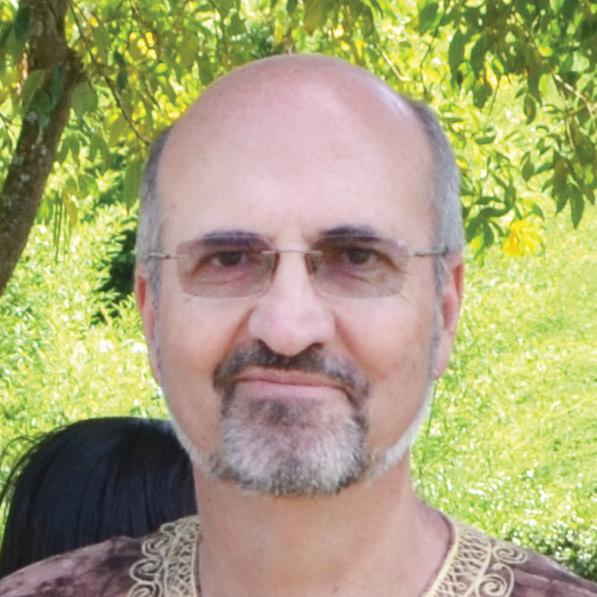




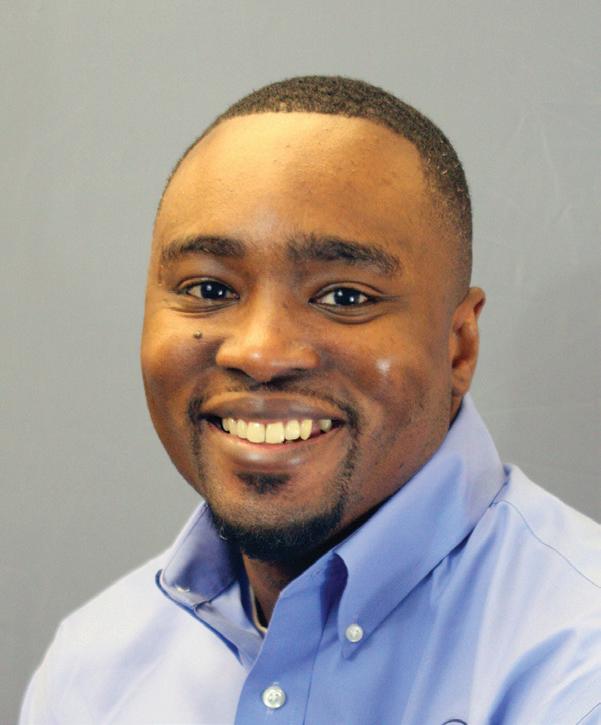

How do we balance compassion and security?

The World | Evangelicals are “all over the place” in their reaction to the Syrian refugee crisis, in one assessment, a situation complicated many times over by the terrorist attacks that left 129 dead in Paris in November and now the killings of 14 by an Islamic couple in San Bernardino, California. First characterized as a workplace shooting, that attack that was soon revealed as motivated by religious extremism. The call to aid refugees came as early as September as 1.5 million Syrians fled Islamic terrorist forces in their homeland, spilling into Turkey, sailing to Greece, and beginning an unprecedented migration across Europe. But the response from

New The Seekers

CARING Small church meets big needs Hunger is year-round P. 5 FRESH IDEAS Take group leaders out to ‘launch’ Diana
P. 13 Keep in touch Get news and commentary online. See page 3 for addresses. Nonprofit Organization U.S. POSTAGE PAID Peoria, Illinois Permit No. 325
Illinois Baptist
Davis
See
strength in others, let them lead
Today’s magi are young and worldly wise, but naive about Christ.
DECEMBER 14, 2015 Vol. 109 No. 17 News journal of the Illinois Baptist State Association
P. 3
MISSIONS Author, author Girl pens second book for Haiti school project P. 11 IBSA Welcome Returning missionary joins staff P. 4
IN
FOCUS: Mark Coppenger offers insight from his decade as a church planter in Chicagoland P. 7-9
CONVENTIONAL WISDOM
Snapshots
from the world of Illinois Baptists
“Christmas traditions that have nothing to do with the Christian faith continue to multiply. Still, most Americans want more of Jesus in their Christmas rather than less.”
– Scott McConnell, LifeWay Research
Culture: Keep Christ in Christmas
The vast majority of Americans agree, “Christmas should be more about Jesus.”
Not Sure
Church: Get ready for guests
Most also agree, “Christmas activities should include a visit to a church service.”
– LifeWayResearch.com, Dec. 2014
the cooperative program
Giving by IBSA churches as of 12/4/15 $5,595,072
Budget Goal: $5,907,692
Received to date in 2014: $5,550,615
2015 Goal: $6.2 Million
The Illinois Baptist staff
Editor - Eric Reed
Contributing Editor - Lisa Sergent
Graphic Designer - Kris Kell
Editorial Contributor - Meredith Flynn
Administrative Assistant - Andrea Hammond
For questions about subscriptions, articles, or upcoming events, contact the Illinois Baptist at (217) 391-3110 or IllinoisBaptist@IBSA.org
The Illinois Baptist is seeking news from IBSA churches. E-mail us at IllinoisBaptist@IBSA.org to tell us about special events and new ministry staff.


POSTMASTER: The Illinois Baptist is owned and published every three weeks by the Illinois Baptist State Association, 3085 Stevenson Drive, Springfield, Illinois 62703-4440. Subscriptions are free to Illinois Baptists. Subscribe online at IBSA.org
NATE ADAMS
From there to here
Over the past few weeks, I have spoken personally to more international missionaries than at any other time in my life. The International Mission Board has offered hundreds of personnel over age 50 a “voluntary retirement incentive,” and I have been working through IMB’s transition team to try and match at least two or three of those missionaries with IBSA’s current vacancies. The process has left me with three lasting impressions.
First, I’ve been reminded that international missionaries are regular people, just like you and me. In my various interviews and reference checks, I have met people from places like Kentucky, Indiana, and yes, Illinois. We’ve talked about the churches that sent them overseas, and the families they hope to see more frequently once they’re back in the states. We’ve talked about the schools, the jobs, and the Sunday school classes that prepared them for their service. Though some have been missionaries for decades and in one or more foreign lands, I could easily see them feeling at home in our IBSA churches.
Second, I’ve been pleasantly surprised to learn how many of these missionaries are doing jobs that prepare them well for service at IBSA. They are able to see their possible move from the international field to the state mission field as a change in venue and not a change in calling.
Three of our current openings at IBSA are in areas such as business, accounting, and communication technology. I often picture international missionaries as field evangelists or church planters, and, of course, many of them are. But supporting their work are also missionaries in roles such as “finance team leader” and “logistics coordinator.” Without those roles, evangelism and church planting would be difficult, if not impossible.
I’m very pleased that one of those logistics coordinators, Jeff Deasy, will join the IBSA staff in January as our newest Associate Executive Director, succeeding Melissa Phillips in leadership of IBSA’s Church Cooperation Team. Jeff and his wife, Kathy, have served for the past 20 years in Brazil, Tanzania, and, most recently, Kenya. Though he has taught music, learned Portuguese and Swahili, and done church planting fieldwork, it is Jeff’s years of administrative experience that have prepared him most specifically for his new role.

Jeff and his office staff in Nairobi have helped make it possible for up to 30 missionary families to serve the people and churches of Kenya. Now he will lead our office staff in serving the people and churches of Illinois.
The third lasting impression that I have from talking with multiple international missionaries actually came most poignantly from the Deasys themselves. As we got to know each other, we talked about what it would be like to leave their friends and home in Kenya after so many years, and make a new home in Illinois.
“We’re missionaries,” they both said. “We will be missionaries wherever we are. Here in Kenya, we talk openly about our faith. And in Tanzania, every Friday is designated by the government as a ‘religion day,’ where we can talk openly in schools and other public places about our faith. Even predominantly Muslim communities recognize this right, and many hear the gospel as a result.”
I was encouraged to see their eyes sparkle with optimism and newfound purpose as they continued. “We haven’t been in America often the past 20 years. But from what we understand, there seems to be more religious freedom in Kenya and Tanzania than in much of America today. We will be just as happy to be missionaries in Illinois.”
Nate Adams is executive director of the Illinois Baptist State Association. Respond to his column at IllinoisBaptist@IBSA.org.
2 IBSA. org Illinois Baptist
We’re missionaries….We will be missionaries wherever we are.
79
3% 79% 18% Agree Disagree
63
4% 63% 32%
Agree Disagree Not Sure
from the front: refugees

Continued from page 1
Americans, tepid from the beginning, chilled further as the shooting began.
“There’s a lot of confusion among Christians on the right response to Syrian refugees,” Robert Jeffress, pastor of First Baptist Church of Dallas told Baptist Press, “because many people do not understand that while we as Christians have one responsibility individually, the government has another responsibility.”
Individuals must “show compassion for these refugees,” Jeffress said, but “the government has another responsibility... to secure our borders.”
“Well, before we’re Americans we’re Christians,” Russell Moore contended in an interview with NPR. The head of the SBC’s Ethics and Religious Liberty Commission advocate assisting Syrian refugees, citing Jesus’ teaching about the Good Samaritan.
“We have to be informed by a certain moral sense, which means we need to speak up for moral principle and for gospel principle regardless of who that offends,” Moore said. “We have to be the people who stand up and say ‘Look, vigilance is good, and prudence is good. But a kind of irrational fear that leads itself to demagogic rhetoric is something that we have to say no (to)—no, we’re not going to go there.”
Relatively few Syrian refugees have been admitted into the U.S. so far: 1,500 by one count, 2,100 by another. At present, governors of 32 states have refused resettlement of Syrians within their borders, despite what Time magazine calls an intensive
vetting process which has been increased for Syrian refugees. (Illinois’ Bruce Rauner was the eighth governor to refuse to settle refugees.)
“The screening of refugees is a crucial aspect of national security, and we should insist on it,” Moore told BP. “At the same time, evangelicals should be the ones calling the rest of the world to remember human dignity and the image of God, especially for those fleeing murderous Islamic radical jihadis.”
Indeed, Christianity Today, which positions itself as a magazine of evangelical thought, has urged Christians to embrace the “unparalleled opportunity to love neighbors here and abroad, and to showcase the beauty of the gospel that proclaims good news to the poor, liberty for those stuck in refugee camps, and a new life for those fleeing from oppression.”
It should be noted that the editorial was published prior to the mass shooting in Paris, and since then, polls show evangelicals split on aiding refugees. “We want to protect ourselves from those who might hurt us,” the president of World Vision Richard Stearns wrote. “Jesus asks us to love our neighbors—regardless if there might be enemies among them.”
Not everyone agrees. “Christian charity means loving the safety of the neighbor next door at least as much as loving the safe passage of the neighbor far away,” wrote Michigan pastor Kevin DeYoung in a widely read blog post. DeYoung, whose church (University Reformed in Lansing) has extensive outreach to immigrants, says he doesn’t know what

to do about our “broken immigration system.” But “the issues are of such a complexity that they cannot be solved by good intentions and broad appeals to Christian charity.”
WMU offers aid
Meanwhile, the Woman’s Missionary Union Foundation is working with an Arab ministry to help Syrian refugees living in Jordan. Currently, there are 1.5 million Syrian refugees in Jordan, but only a small percentage resides in official refugee camps. Those who live outside of the camps are not eligible to receive food or other assistance from the Jordanian government.
“Because of the increase in the number of refugees from Syria, we are seeing many families who are not being taken care of and have nowhere to turn,” says Ruba Abbassi of Arab Woman Today (AWT). “They need food, blankets and basic necessities.” The WMU Foundation has a long history of working with AWT.
The WMU Foundation is asking people to provide a blanket for $25, a heater for $50, or a month’s worth of food for a family for $100. Gifts can be directed to the WMU Foundation’s AWT Fund, 100 Missionary Ridge, Birmingham, AL 35242. Or visit wmufoundation.com.
– IB staff report, with reporting from Baptist Press,transcripts from NPR.org, ChristianityToday.com, and thegospelcoalition.org
They’re coming to America
Not Syrian refugees. Only about 2,000 have been admitted to the United States, compared to the 800,000 Syrians Germany says will be admitted this year. But who is coming to the U.S?
In the past 12 years, the U.S. has resettled 762,000 refugees, including 338,000 refugees (44%) who identify as Christian. Among them are 23,247 Baptists, including
• 5,980 from Myanmar (formerly Burma)
• 5,937 from the Ukraine, and





• 4,043 from Moldova.
– from Christianity Today and Open Doors World Watch
See more on page 10
IBSA. org 3 December 14, 2015 NEWS The Ticker facebook.com/illinoisBaptist twitter.com/illinoisBaptist pinterest.com/illinoisBaptist vimeo.com/IBSA www.IBSA.org www.ib2news.org Follow the latest Illinois Baptist news
LONG JOURNEY – Each day thousands of refugees and migrants who arrive on the Greek island of Lesbos after fleeing war and persecution in their home countries line up to take one of several daily ferries to Athens.
Photo by Jedediah Smith/IMB
New AED announced
Returning IMB missionary to direct IBSA’s business services
Springfield | Jeff Deasy, a 20-year missionary with the International Mission Board, will serve as associate executive director for IBSA’s Church Cooperation team.
A native of Kentucky, Deasy and his wife, Kathy, served in Brazil, Tanzania and Kenya before accepting a voluntary retirement incentive offered to missionaries and staff by the IMB earlier this year.
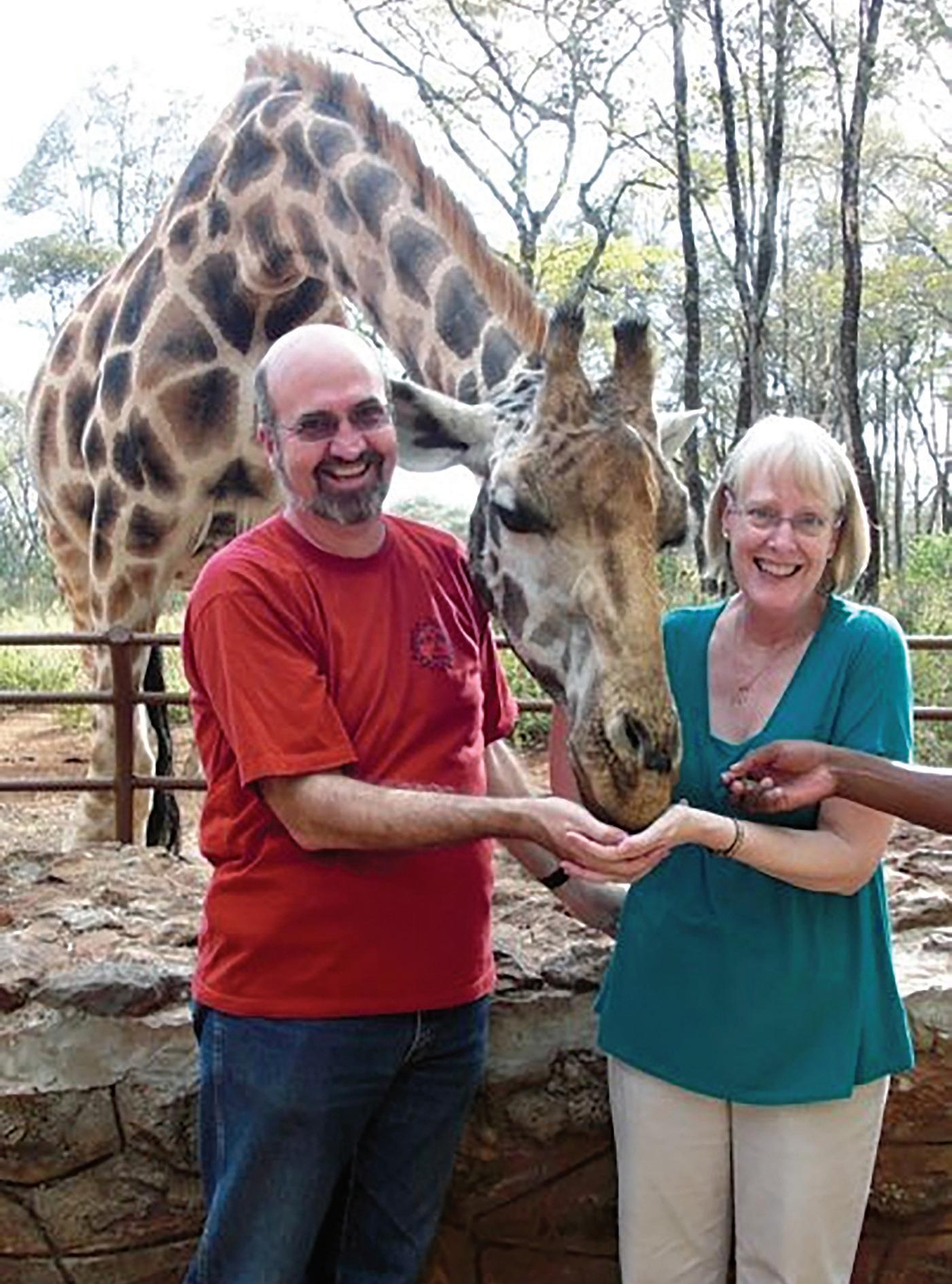
“Many of us have been praying for our international missionaries who are returning stateside, and I’m delighted that Jeff and Kathy have now found a new home, both here at IBSA and in the Illinois Baptist family,” said IBSA Executive Director Nate Adams.
“I’m confident that Jeff’s missionary perspective and heart, as well as his administrative skills and experience, will make him a great addition to our staff.”
The Deasys began their service with IMB in 1995, with Jeff teaching at a seminary in Recife, Brazil, where he led the music department. He also served as IMB’s business manager in Brazil and strategy coordinator over the area of Brasilia.
Later, he did language and cultural acquisition and storying training in Tanzania, and taught at the Baptist seminary in Kenya. In that country, he served as administrator and logistics coordinator, handling budget, travel, freight, documents, housing, and cars for all missionaries.
Deasy has a Master of Divinity in Church Music from The Southern Baptist Theological Seminary. Before moving overseas, he served churches in Indiana and Tennessee.
“Our prayer through this transition has been that God would make it very clear where it is that He wants us to go and what work it is that He wants us to do, and we feel He has done just that,” Deasy said. “We surely aren’t retiring! It is more like transferring our ‘home base’ and continuing our service for the Kingdom.
“We are looking forward to our new ministry, our new colleagues, and our new mission field with anticipation, to see what God is going to do.”
INTERNATIONAL MISSION BOARD
Missionaries return to U.S.
IMB reducing staff by at least 600
Richmond, Va. | The beginning of December marked the time International Mission Board missionaries could officially accept a voluntary retirement incentive (VRI) announced earlier this year as an effort to alleviate budget shortfalls.
IMB estimates it will reduce personnel by at least 600 missionaries and staff members who either accepted the VRI or will respond to a “handraising opportunity” to be offered to all staff in January.
“Whether to accept the incentive is a voluntary decision completely up to the discretion of eligible individuals,” IMB President David Platt (right) said in August. “This offers personnel who may already be considering a transition in their lives an opportunity to make that transition.

“We want to be as generous as possible, and we want to honor every brother or sister for his or her service. We know that taking a voluntary retirement incentive does not mean stepping onto the sidelines of mission, but moving into a new phase of involvement in mission.”
Bonita Wilson, a missionary in Southeast Asia and former IBSA employee, posted on Facebook about her decision to accept the VRI. “It is a strange feeling and much to process. I am grateful for all that God has allowed me to experience and be a part of these past 23 years.
“I know I can trust in His plans for my future. Looking forward to what He has in store.”
When Platt announced the IMB’s plan in August, he said the agency is projected to fall $21 million short of its current budget.
Garden memorial
Over the past six years, the IMB has spent $210 million more than it has been given.
In a letter to IMB trustees posted on the board’s website, Platt said the agency projects it will save $38.6 million in 2016 because of the retirement incentive. Subtracting the one-time cost of providing the VRI to employees who accept it, the IMB will net savings of $15.5 million.
To prepare for the wave of missionaries coming back to the U.S., the IMB has published a list of ways churches can support them through the transition. The document, available at IMB.org, suggests churches develop “re-entry teams” to welcome returning missionaries.
“Perhaps more than one church or an entire association of churches could come together to temporarily assist with needs related to transportation, housing, childcare, meals, spiritual encouragement and support,” IMB advises.
The online document guides re-entry teams to the numerous questions to consider as missionaries return to the U.S. How will you help them deal with reverse culture shock? How will you support their children? How will you help them grieve for the country and people they’ve left?
“The first step is to remind the entire congregation of the desire and commitment your church has to support personnel returning to the U.S.,” the IMB advises. These servants need to know they are welcome to be a part of your church family and the church needs to be prepared to receive them in an appropriate way.”
– Meredith Flynn
Fund to aid beautification
The new garden bench honoring Melissa Phillips has become a popular spot in front of the IBSA building. It’s not uncommon to see someone stopping to read the inscription recognizing the 35 years of service of the late leader of the Church Cooperation Team.

When the bench was dedicated in November, Melissa’s husband, Doug, made a donation for the upkeep of the garden space and islands at the entrance to the building. An avid gardener, Melissa led the IBSA staff in spring and fall planting projects.
At the 109th Annual Meeting, IBSA Executive Director Nate Adams announced the creation of the Melissa Phillips IBSA Properties Beautification Fund. Contributions in Melissa’s memory may be made to IBSA, 3085 Stevenson Drive, Springfield, IL 62703-4440.
4 IBSA. org Illinois Baptist
JOINING THE TEAM – Jeff and Kathy Deasy will relocate to Illinois after serving with the International Mission Board in Brazil, Tanzania, and Kenya.
Small town, big outreach
This rural church’s food pantry feeds untold thousands
BY MORGAN JACKSON
Oconee | They’re a congregation of 25 members in a rural village of 175. But Oconee Baptist Church’s food pantry serves a couple thousand people each month across four counties in central Illinois.
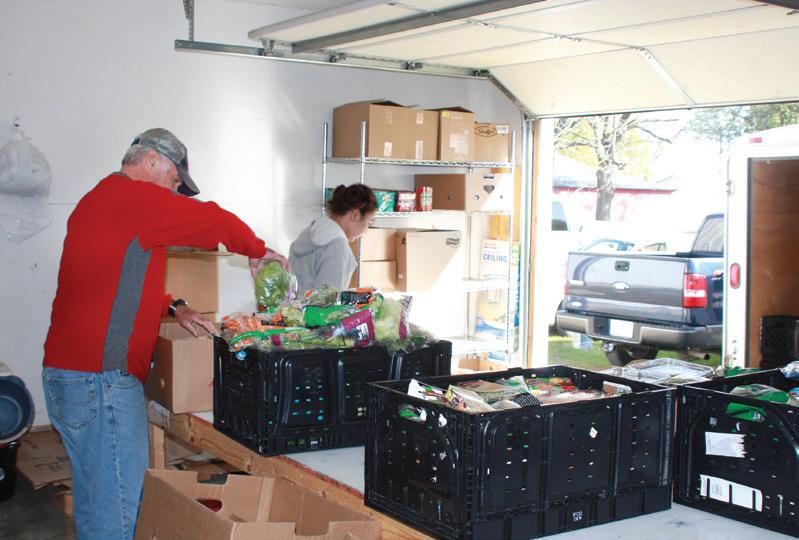
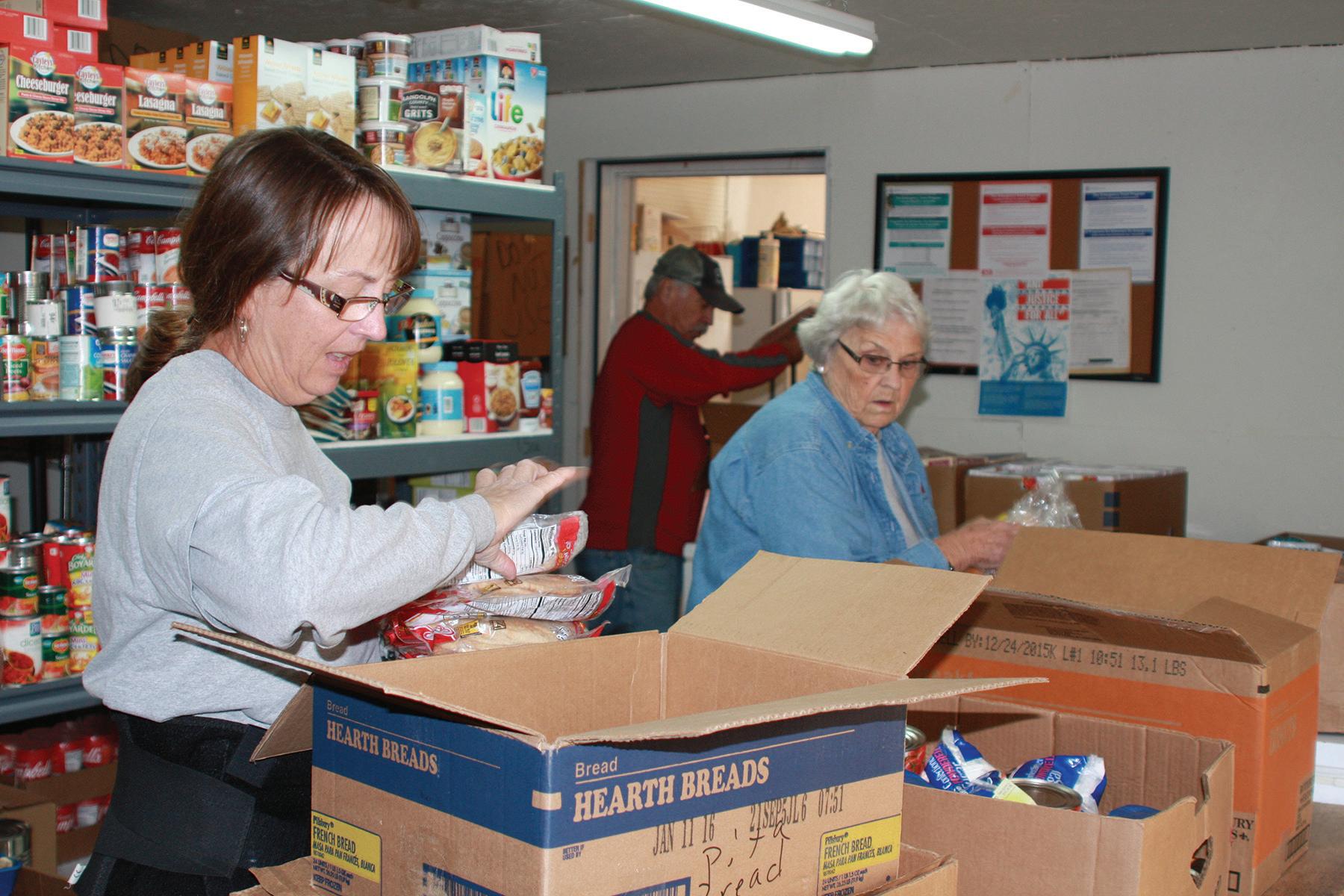
About 10 years ago, church member Neil Oreskovich was challenged to restart Oconee’s food pantry, which had been discontinued in the 1980s. He and the church’s pastor at the time, Dan Penrod, worked to reignite the ministry. The undertaking started out small—housed in just one room at the back of the church, serving 150 people a month.
a shipment of donated goods from WalMart. They also make a monthly trip to Bloomington’s Midwest Food Bank, as well as a visit every 30-60 days to the Central Illinois Food Bank in Springfield.
When asked how many people they serve in a given hour, volunteer Linda Eck said, “You never can guess. It ranges anywhere from 20 to 50 families.” According to their detailed list of every household currently signed up to receive food, the count is 2,477 individuals.
“We don’t ask anybody for funds, never do,” Oreskovich explained. Yet they hand out up to 40,000 pounds of food each month. “My wife figured it out one day. It’s probably close to $150 worth of groceries [that each family receives], and we don’t pay for anything.
“We try and get rid of everything that comes in on any given day. We want it gone... The Lord sends too much sometimes, and I don’t know what to do with it!” It’s a good problem to have, one volunteer quickly reminds Oreskovich from the check-in table.
48 million Americans are often hungry
Hunger goes unabated in the U.S. according to a new report. “The number of food insecure people in the U.S. has not dropped below 48 million since 2007, the beginning of the Great Recession,” said Asma Lateef, director of Bread for the World Institute. Advances have been reported in developing nations, but the U.S. has hit a plateau in feeding hungry people. And malnutrition adds $160 billion annually to the cost of healthcare in the U.S. “Food insecure” means that in federal survey data, people responded “true” to several different statements about their access to food. For example: “The food we bought just didn’t last and we didn’t have money to buy more.”

“Families with children are more likely to be food insecure,” Lateef said.
Fairly generously givers
The U.S. ranks second in charitable giving among 145 nations, according to the World Giving Index. Coming in first, Myanmar (formerly Burma). “The donations are small but frequent, and have significant religious meaning,” the New York Times notes of Myanmar’s many fundraising parades with bands and bullhorns.
The Charities Aid Foundation based the rankings on three factors: helping a stranger, donating money, and volunteering time. Myanmar leads in money and time, while the U.S. scores higher on helping strangers. New Zealand, Canada, and Australia round out the top five. The bottom five: the Palestinian Territory, Lithuania, Yemen, China, and Burundi.

“And then it got a little too big,” said Oreskovich, who ran the pantry mostly by himself that first year.
More people volunteered to help, and a separate building was constructed behind the church for the ministry’s use. It wasn’t long, though, until 150 grew to 800, and the single room and counter no longer sufficed. Another addition was built, and they kept helping more people, Oreskovich recalled.
Before they knew it, 800 turned in to 1,500, and the pantry has served as many as 2,000 in a month.
Today, the Oconee Baptist Church Food Pantry is open Monday, Wednesday, and Friday each week from 11:30-12:30. The 17 volunteers take turns running it and making the daily, 40-mile round trip to pick up
With donations from local farmers and other churches, the successful and ongoing operation of the pantry really is a group effort. “The whole community is supporting us. Not everybody working here is [even] a member of the church,” said Oreskovich.
And although the physical needs of many families are met each year by the ministry, Pastor Bob Evaul makes sure spiritual nourishment is the main topic on every handout day—asking each person whether or not they have a church home, and inviting them to Oconee if they don’t.
“What I like to do is, when I get an opportunity, go out and talk to the people waiting before we open up and pray with them,” Evaul said. ”And we have seen the Lord answer prayers...The people are just amazed at what [He] is doing.”
Baby found in manger
A babe wrapped in swaddling clothes was found in a manger, not the one in Bethlehem, but outside a New York City church last month. Surveillance video from a nearby store showed a young woman purchasing the purple towels discovered with the newborn in the nativity scene at Holy Child Jesus Catholic Church in Queens. Now in state custody, the healthy boy has been dubbed “Baby Jesus,” at least temporarily. The plastic doll that had resided in the manger is missing.
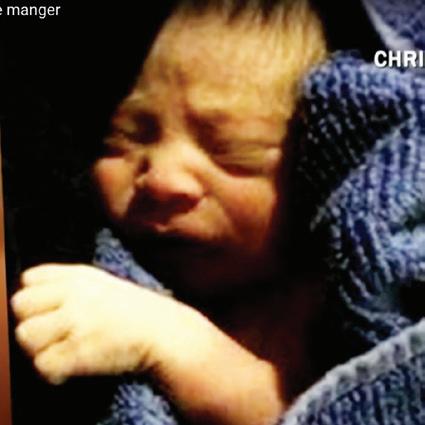
the briefing IBSA. org 5 culture
– Christian Post, The Daily Signal, NY Post
Get breaking news in The Briefing online, posted every Tuesday at www.ib2news.org.
December 14, 2015
“BABY JESUS”
The tension of Christmas
Why the holiday season is a mix of comfort and joy, grief and heartbreak.

“If Advent is about longing, maybe it is also about unavoidable impatience. The world is not yet put to rights: there is too much suffering and poverty and war. Dimly, I sense the myopia of my privilege, how it affords me distance from the everyday experience of degradation. But if I mean to be formed by Advent, then I must, at the very least enter imaginatively the tragedy of every act of injustice—and seek to relieve it, as often as, by God’s grace, I can.”
– Jen Pollock Michel, author of “Teach Us To Want” jenpollockmichel.com
“In a time of obvious tragedy, the unbearable lightness of Christmas seems absurd to the watching world. But, even in the best of times, we all know that we live in a groaning universe, a world of divorce courts and cancer cells and concentration camps. Just as we sing with joy about the coming of the Promised One, we ought also to sing with groaning that he is not back yet (Rom. 8:23), sometimes with groanings too deep for lyrics.”
– Russell Moore, president Ethics and Religious Liberty Commission russellmoore.com
Heavenly peace
Four months ago, my husband and I got the best gift we’ve ever received: Our daughter, Lucy, was born August 5, launching us on an amazing, sleep-deprived journey as parents.
When we held her for the first time, we saw her with new-parent eyes—she was squinty, puffy, wrinkled, splotchy perfection. I’d guess we got about 90 seconds of peace before the thought popped in my mind that has dominated the last four months: Oh, there are so many ways we can mess this up.
New and prospective parents, resist the temptation to Google. Because once you go down that road, there’s no coming back. Paci or no paci? Swaddle or free sleep? Is the fresh air good for her, or full of germs too mighty for her tiny immune system? If she fails at tummy time, is it because she’s nervous about performing well in front of me? (Believe it or not, this is a thing, even at four months. Google it.)
Those 21st century concerns are embarrassing to say the least when I think about what another, historical mom must have worried about in the days after her son was born. This stable is so dirty, Mary must have thought. There are so many goats.
And later, Who are these people from the east who have come to see him? Can I trust
they have his best interest in mind?
And, ultimately, I know why he’s here. Can I really stand to watch him fulfill God’s purpose for his life? Can I really let him die? How many ways can I mess this up? she must have wondered.
The worries of motherhood, which can spiral pretty quickly into downright terror, could have made Mary cling tightly to the gift she’d been given, and the heavy responsibility she must have felt. After experiencing four months of parenting-induced anxiety, I know that had I been Jesus’ mother, I would have kept him in the house and away from germs for as long as possible. Probably still in his swaddling clothes.
But instead, after submitting herself to what had to have been a numbing proclamation (Luke 1:38), Mary watched everything happening to her son and her family and treasured them all in her heart, meditating on them (Luke 2:19).
Instead of worry, she embraced the heavenly stillness and peace of knowing that while her human weakness and propensity to make mistakes lurked around every corner, God was in control.
He still is.
TRINITY INTERNATIONAL UNIVERSITY WELCOMES
 THOMAS H.L. CORNMAN DEAN, TRINITY COLLEGE AND GRADUATE SCHOOL VICE PRESIDENT FOR ACADEMIC ADMINISTRATION
GRAHAM A. COLE
DEAN,
THOMAS H.L. CORNMAN DEAN, TRINITY COLLEGE AND GRADUATE SCHOOL VICE PRESIDENT FOR ACADEMIC ADMINISTRATION
GRAHAM A. COLE
DEAN,
TRINITY EVANGELICAL
DIVINITY SCHOOL VICE PRESIDENT FOR EDUCATION
“We are thrilled to welcome Graham Cole and Tom Cornman to these two strategic leadership roles in the life of the Trinity academic community. Together, Deans Cole and Cornman bring years of wise and significant administrative experience, a love for students, a genuine commitment to the church, along with a shared appreciation of and dedication to teaching, scholarship, and the distinctive mission of Christian higher education.”
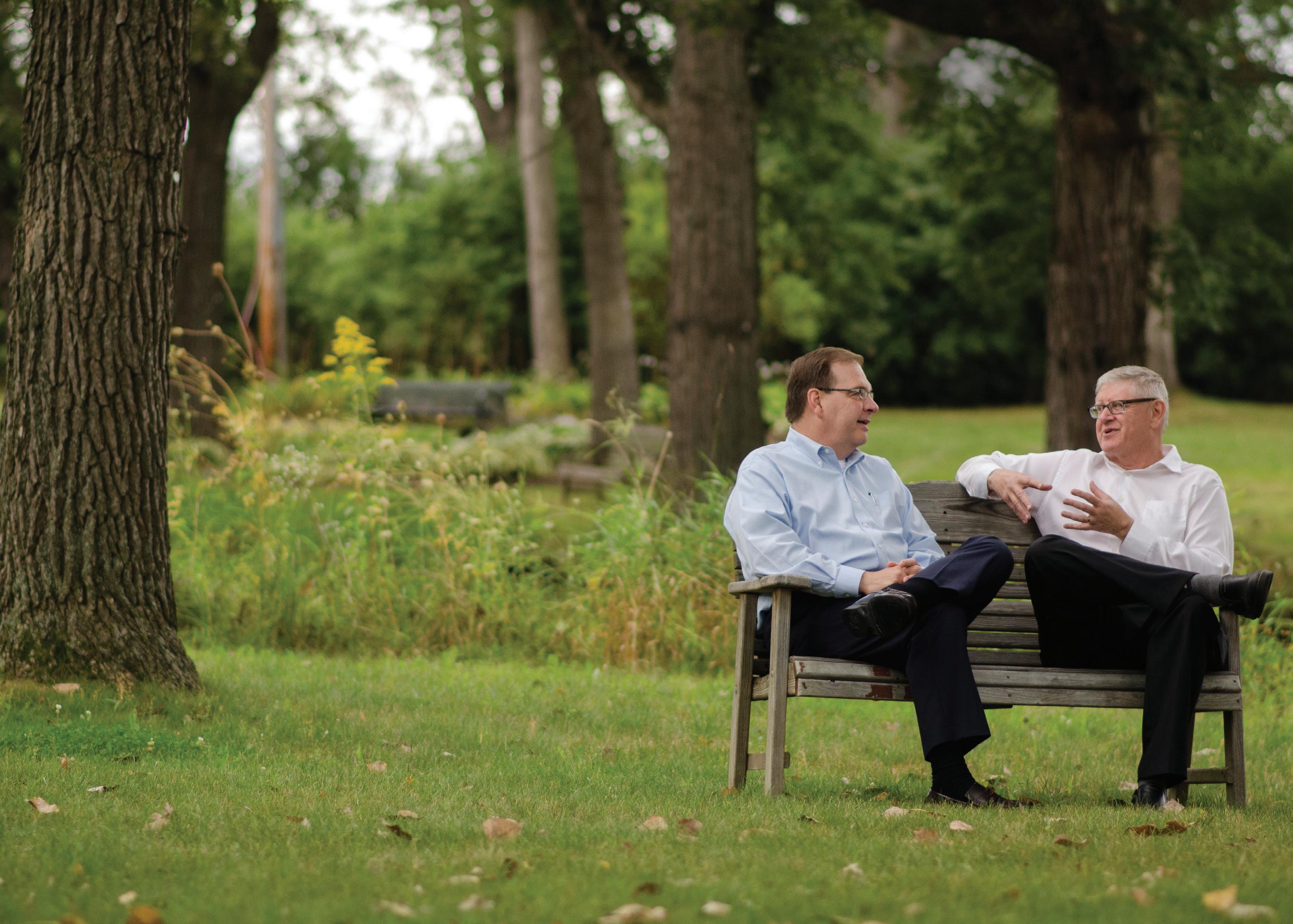 DAVID S. DOCKERY | president, trinity international university
DAVID S. DOCKERY | president, trinity international university
–
reporter’s notebook 6 IBSA. org Illinois Baptist
MDF
17326_Illinois Baptist newspaper ad_New Deans | No Bleed | 102915
sound off
tiu.edu | 2065 Half Day Road | Deerfield, Illinois 60015
IN FOCUS
The New Seekers
BY MARK COPPENGER
While a 60-year-old church planter in a university town just north of Chicago, I had at least one big personal question: Why would college students come to a basement rental space to hear a balding, overweight preacher who was often the only one in the service wearing a tie? At least I knew it wasn’t my effort to “dress for success,” which used to mean gray slacks, a blue blazer, rep tie, and such, but had come to mean work jeans and an untucked shirt. The best I could tell, sartorial and tonsorial factors were not much in play.
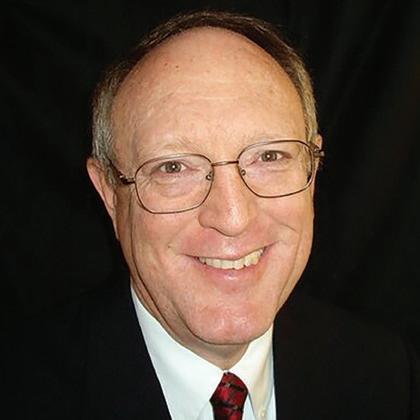
And lest you have the impression that I was some sort of maven at reaching Millennials, I should hasten to say that a lot of them stayed away, and a lot of them who gave us a look never came back. As the
old joke goes, “We had three decisions on Sunday. One was for God, and two were against.” I think that goes with the territory when you preach “the whole counsel of God” in an age when feelings, relativism, and political correctness rule.
In our 11 years in Evanston reaching out to the Northwestern University campus, our church plant grew about five per year in average attendance, ending with about 55 a week. Of course, college communities are very fluid, and we’d regularly have our heart broken by graduations, where we’d lose a chunk of our treasure. But we labored on in joy and with some fruitfulness, and today we take great satisfaction as seeing our former parishioners
Continued on page 8
PHOTO: Worldly wise, spiritually curious
The magi in this nativity hail from Uganda. The set is made by craftsmen and women in Africa. It is sold through WMU to aid workers in developing countries.
– Worldcrafts.org

IBSA. org 7
December 14, 2015
A generation after the seeker movement, today’s young adults come bearing more doubts than beliefs.
Seekers bring curiosity, openness, and skepticism

continued from page 7
on the mission field in Germany, India, and China; as Christian faculty at such universities as Maryland and North Carolina; in corporate positions from New York to San Francisco; in military service bands, medicine, the urban classroom, magazine staffs, NASA consultancies, symphony orchestras, etc.
Many of these folks were already walking with the Lord, and we simply had the privilege of walking with them on a segment of their journey. But some were also coming in from the pagan pool. Some were old guys— one was an aging veteran of Iwo Jima who was concerned with “studying for finals”; another was a middleaged Baha’i, who wanted a chance to bone up on one of the many faiths they somehow embraced.
All this being said, here are some things that come to mind about our linkup with Millennials, many of whom were not believers when we met them.
They’re seeking a way out First, let me say that in the talk about “seekers” and “seeker-friendly churches,” we see something of a duel between those who point to Romans 3:11 (“there is no one who seeks God”) and Jeremiah 29:13 (“You will seek me and you will find me, when you seek me with all your heart”).
The former say that the lost have little or no appetite for the true God, at least until he intervenes in their hearts. The latter emphasize the human will and point to cases, whether biblical (John 12:21), historical, or contemporary, in which people did, indeed, come looking for the Lord.
Of course, this leaves open the question of why they were looking. (For what it’s worth, I’m persuaded that the overarching answer is that God puts it in their hearts to seek him, and they’re not really seeking him until he does this.)
I think it’s fair to say that most of our seekers were looking more for a door out of their current spiritual situation than for one into the Kingdom of Christ. They’d made a mess of their lives or come up empty in one way or another. They were unlucky in love, academics, employment; depleted and damaged by addictions, sexual sin; exhausted by the grind, betrayed by friends, marginalized by the culture and such, and they were willing to try something new. So they weren’t so much homing missiles intent on pursuing the righteousness of God, as they were anxious travelers thrashing about in the woods, spotting a cabin light in the distance and walking toward it.
Some were happy to join in the life of the cabin, glad to receive the mercies and life of the one who had invited those who were “weary and heavy laden” to come to him for rest. But others soon got cabin fever and sought the exit.
They loved the warmth and camaraderie and words of grace and love, but they couldn’t abide the language of Zion or imposition of the biblical prerogatives, and so, after warming their hands at the hearth, they plunged back into the darkness. There were, for instance, those who couldn’t or wouldn’t give up their intimate cohabitation without benefit of marriage. If they had been looking for the true God, they would have stayed, but they were only interested in trying out a new drug.
I was struck by the testimony of one of our Chinese students that her father had urged her to check out Christianity since it seemed connected with human and economic wellbeing. He wanted her to get a fix on what those Christian birds were up to that made them fly so high.
For those who had a heart to stay, we made a way for them to grow “in wisdom and stature and favor with God and man.” For the others—the rich young rulers, if you will—they’d had a look at what discipleship meant, like it or not.
Despite what the critics say, the church still has a lot of cachet, and we should expect people to give us a look if only to figure out, “What is it with those guys?”
Spiritual nomads need roots

Fewer and fewer young adults come from gratifying homes, and those that do so miss what they had when they move away. Either they don’t much know what a family is supposed to look like, or they long for a substitute. And that’s where the church can come in big time.
In Evanston, Sharon and I were empty nesters for most of our years as a church-planting couple, so we had a lot of freedom to connect in fatherly/motherly (or grandfatherly/grandmotherly) ways. We’d go to their plays, recitals, sporting events, and such, taking photos, making over them at receptions, and basking in the moments of their achievement.
I remember one night at a club in Rogers Park, we went to hear a group called the Blind Anabaptist Blues Band, formed by one of our Northwestern students. They performed in all sorts of venues, high and low, in the Chicago area. They offered a mix of secular and sacred music, the lead singer with something of a Bob Dylan/Tom Waits sound. That night they led with several of their “worldly” numbers (e.g., “Girl With Gin on Her Lips”), but then, 20 minutes or so into the set, they gave a straightforward rendition of an old hymn.
You might think this would come off like fingernails on the blackboard, for overnight hookups were shaping up at the bar, pitchers of beer sloshed everywhere, and a lesbian couple had taken to the dance floor in front of the band. But a sweet reverence came over the room, with strangers mouthing some of the words, and with, perhaps, a tear or two at this or that table.
Perhaps they remembered the days when their mommy took them to Sunday school, they sang in the youth choir, or they sat on the back row of some church, barely attentive to what was going on, but with their young impressionable minds absorbing those gospel strains. So we need to be careful about throwing old stuff under the bus, for it may well be a linkage point.
What they know, what they don’t
I may have this all wrong, but I don’t think the current young adults read or learn as much background material as we Boomers did. I’ve seen several studies showing that, in high school and college, they’re writing fewer and fewer term papers.
They’re juiced with music in their ear buds, tweeted to insensibility, selfie’d into the third celestial ring of narcissism, and often remindful of the French, who after their 18th-century revolution, started the calendar all over again, declaring themselves the founders of a new age, no longer beholden to the BC/AD business.
So while you may stumble on syncing your iPhone or some other item of technological arcana, you know who Lottie Moon was, how William Carey fought widow burning in India, what turned Wales upside down in 1904, how ‘Messiah’ and ‘Christ’ connect with oil, the connection between Nineveh and Mosul, and what difference Mordecai Ham and William Randolph Hearst made to Billy Graham.
Today’s seekers don’t. Of all the people in that list, they may not even know Billy Graham. They may know

8 IBSA. org Illinois Baptist
a lot of stuff, but they’ve missed a lot of important stuff their filters have kept them from learning.
These are folks who’ve been brainwashed in the paralyzing ideology of political correctness and overweening sensitivity, ever alert to the “gotcha,” by which they’ll lose their social standing, if not more.
They know that “Islam is a religion of peace,” that “gay is okay,” and any number of other secular pieties. They learn that the greatest sin is perceived intolerance (a foolish conviction exposed in Allen Bloom’s “The Closing of the American Mind”), and they’ve likely joined in the witch burnings of those designated “phobic” in one way or another.

But there you are, speaking the plain language of the Bible, whether the exclusivity of Christ, the reality of sin and hell, male headship in the home, and the sanctity of marriage and unborn human life. “You can’t say that!” they say.
“Oh, really,” I respond. “Well, here it goes again.”
Sure, some will stomp out grumbling, but others will be intrigued by the spectacle and stick around to see what the fundie mine sweeper will set off next as he covers his ears and goes lumbering through the fields of biblical teaching.

Some veteran missionaries in our church introduced “storying” for internationals, working off graphic wall hangings replete with Bible scenes, from Genesis to maps. The non-Christian Asian students were particularly receptive. (And, in this connection, I’ve really enjoyed my work at biblemesh.com—“One God. One Book. One Story.”)
I think stories in the form of illustration can also take sermons to a higher level. Some call them “raisins in the oatmeal.” Whatever. I know Jesus used them a lot, in the form of parables. And I know they connect powerfully—and legitimately, if they serve the task of true exposition.
Culture also offers opportunities to connect with Millennials. They’ve been taught to stereotype “fundamentalists” or “chauvinists” or whatever class of vermin is au courant, and they may be queuing up for their own Mizzou protest or Wall Street grump-in according to the demands of the professionally offended. After all, thanks to the modern university, Millennials are hothouse plants, oblivious to thinkers who don’t fit the school’s suffocating ideological template.
So when you suggest that you prefer Booker T. Washington to W.E.B. Dubois, Edmund Burke to Howard Zinn, or Norman Rockwell’s “Saying Grace” to Matthew Barney’s “Cremaster Cycle,” they have a tough time processing your comments.
You might tell them you prefer poems that rhyme to those that don’t, maybe like the work of Robert Frost and Robert Service. That’ll drive ‘em nuts. But do it with a mischievous smile, letting them know that you don’t wish them harm, and that we’re happily a part of a Divine Comedy, not a Divine Tragedy.
My tactic: unruffledness
With the breakup of the family and society’s precipitous descent into the abyss of relativism, hedonism, narcissism, and even nihilism, we are confronted with all sorts of waywardness and frowardness, and we do well to handle these with unruffledness. Today’s seekers will show up with alarming tattoos, mad theories, “father wounds,” and promiscuities, and we should not think it a virtue to swoon in the face of affronts to holiness.
Don’t blink.
Let them tell their story and even put on their displays of lawlessness. Then pick up as you can. That’s what Jesus did. He didn’t cover his ears and go “La-La-La-La” when he heard or saw something unpleasant. Unlike Jesus, we realize that we’re all a mess without his touch, and that none of us could endure a moment-by-moment projection of our lives in Times Square.
Don’t flinch from speaking a biblical word to sin, but don’t flinch from ministering to the sinner.
I’ve heard that, and have come to believe that, God honors our efforts even when they seem futile. We knocked on miles and miles of doors in Evanston, held a range of special events in city parks, and did a mass mailing to the city’s residents. In the end, very few came to church as a result. Or I should say, very few of those we contacted came to church. But a lot of others did, from sectors we’d not anticipated.
One congregant was a dear fellow who told the same stories over and over again over lunch, forgetting that he was repeating and repeating himself; another was a new convert from Islam; another was a theater student, working in constant tension with the values of the secular stage and the claims of Christ; yet another was a Messianic Jew who, as a policeman in uni form, dropped in on our services from time to time; another a pastor’s kid from Arkansas.
Call it an application of the “law of sowing and reap ing”—that God keeps account of our witness efforts and rewards us with fruit from fields we’d not cultivated. We’d not sought them, but by his grace they sought out us.
Mark Coppenger is professor of Christian apologetics at The Southern Baptist Theological Seminary in Louis ville, Kentucky. He is former president of Midwestern Baptist Theological Seminary and a church planter and pastor in Evanston, Illinois.
IBSA. org 9 December 14, 2015
The Lord looks down from heaven on the human race to see if there is one who is wise, one who seeks God.
– Psalm 14:2
The missions offering collected each year at this time supports Southern Baptists’ global missionaries engaging 949 people groups with the gospel.
lottie moon christmas offering
Bringing hope to Syrian refugees
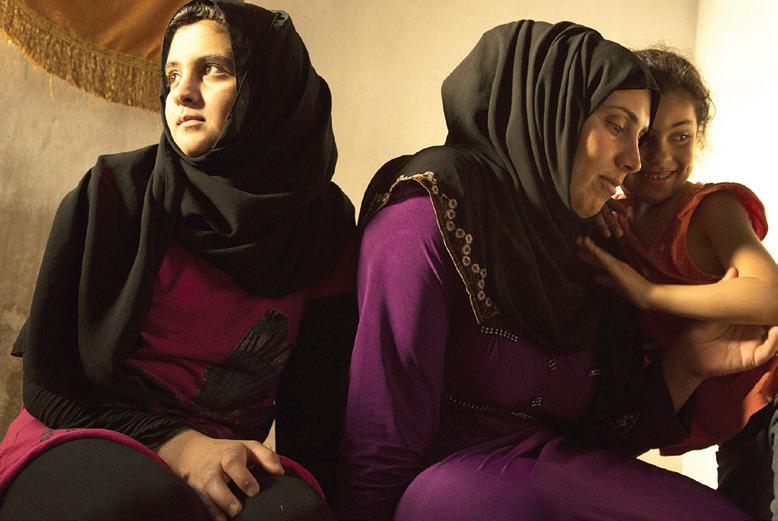
SBC missionaries offer incarnational response to crisis
Middle East | “The hardest thing in this ministry is just sitting down and listening to their hurts,” Christian aid worker Peter Matheson* says about spending time with Syrian and Iraqi refugees. Numbering in the millions, they are victims of a rebellion being fought against the Syrian regime and brutality caused by ISIS and other Islamic extremists.
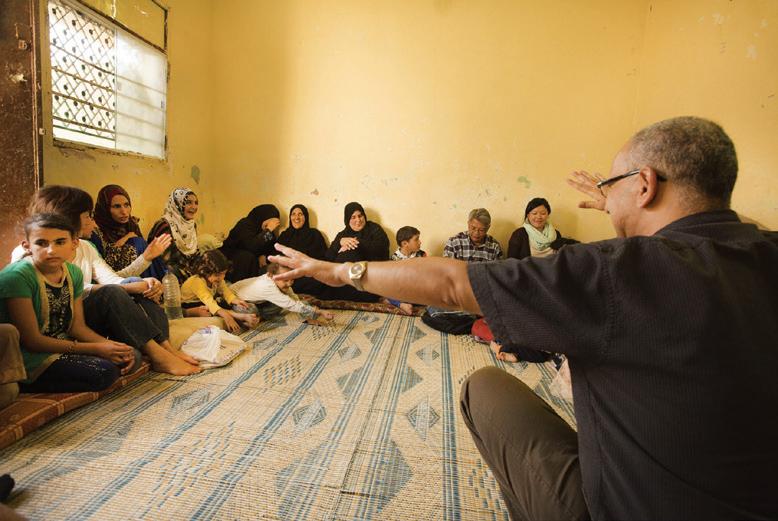

“They come, they arrive with little children just with the clothes on their back, because back in Syria their homes are destroyed, their businesses are destroyed…women have been raped…real torture goes on among men and young men in Syria,” Matheson said.

While images and reports of beheadings, cruelty and pure evil continue to shadow refugees from any light of hope, Matheson is there to tell them about a loving God who cares deeply for all who are fleeing violence and that only He can push back the descending darkness.
Through the support of Southern Baptists, Matheson and other workers are able to distribute boxes of food and other critical necessities provided through gifts to Global Hunger Relief along the Syrian border.
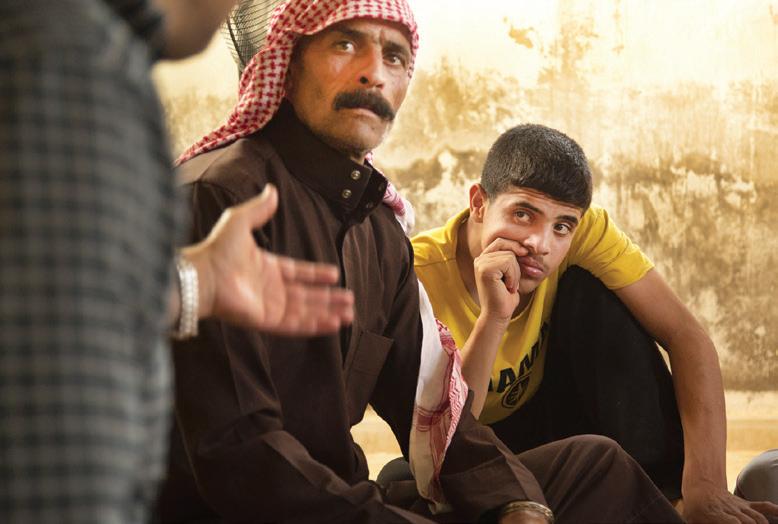
“We are able, through the Cooperative Program and Lottie Moon Christmas Offering, to focus 100% on the ministry that God has given us as workers… as laborers in the field,” Matheson says. “We’re able to give all of our attention to people who are hurting by ministering to their physical, emotional and, most importantly, their spiritual needs.” U.S. churches also are playing a direct role in ministering to refugee needs alongside Matheson.
As more and more Syrians flee the violence, Matheson hopes he can help the refugees out of at least one aspect of the darkness in which they’ve been living.
“My aim is to move them from one level of understanding to another, building into their lives one brick of truth after one brick of truth until by God’s grace (and) the spirit of God working in their lives,” Matheson says.
With overwhelming challenges in the midst of constant need, it would be easy for Matheson to feel alone. But he is sustained emotionally and spiritually as well as financially by knowing that believers back home in the U.S. haven’t forgotten him and share the resolve to bring light where there is darkness.
“From the bottom of my heart, I thank Southern Baptists for giving to the Cooperative Program and the Lottie Moon Christmas [Offering] to keep us as workers…on the field,” Matheson says.
He adds, “Yes, it’s hard, (but) we’re able to minister to their physical needs, showing the love of Christ in a practical way to these people and thus opening an opportunity for them to listen.”
*Names changed
– Excerpted from IMB.org/lottie

10 IBSA. org Illinois Baptist
(1) FORCED OUT – Roughly 9 million Syrians have fled their homes since the outbreak of civil war in 2011.
(2-3) SACRED STORIES –Christian worker Peter Matheson* meets with four Syrian refugee families to pray, share Bible stories and listen to their needs. After Matheson tells the Bible stories, he encourages the family members to repeat the stories back to him.
1 2 3
– Photos by IMB
ON MISSION – Volunteer medical doctor Stephanie Lim* (right) shares pictures of her life in the U.S. with a refugee family who was forced to escape war-torn Syria.
See the video “Hope for Syria” at imb.org/lottie.
THE BIG PICTURE
MISSION
Loving Haiti, part 2

Follow-up book is continuing story of one girl’s commitment to help

Nederland, Texas | The elementary school er who has raised thousands of dollars for earthquake relief in Haiti recently released her second book about the island country devastated by a 2010 earthquake.
“Leila’s New Friend” is Mackenzie Howell’s semi-autobiographical account of her first trip to Haiti last spring. It’s also the sequel to “Leila’s Big Difference,” the book she authored in 2013 to raise support for a school constructed after the quake in the Port-au-Prince neighborhood of Bigarade.
In the new book, Leila is visited in Haiti by an American girl named Mackenzie. She and a team of eight women and “one tall man” (Bob Elmore, who coordinates Illinois Baptist mission trips to Haiti) spend a week at Leila’s school, teaching the kids to make crafts, sharing stories and songs, and serving rice and beans for lunch. In the end, Leila decides she and her new friend aren’t all that different, because “kids are kids wherever they are!”
Continued on page 12
• Baptists in Illinois, Texas work together to support school
• IBSA pastors train leaders in Haiti
IBSA. org 11
PHOTO: Mackenzie Howell helps children craft handmade jewelry at the school she helped build.
December 14, 2015
Young author’s trip to Haiti captured in new book
continued from page 11
Mackenzie’s friend, 11-year-old Jace Theriot, provided illustrations for both of her books, and several photos from her March 2015 mission trip also are included in the most recent installment. The plot is closely related to Mackenzie’s trip, when she and a group of women from her church, Hillcrest Baptist in Nederland, Texas, traveled to Bigarade to work with the kids at Institution Mixte Communautaire de Village Sam. The school was built with help from Mackenzie’s donations to Haiti, which started in 2011 after she saw a documentary about the earthquake.



Missionaries serving in Haiti after the quake connected the Howells with Elmore, who has led several mission trips there, including Mackenzie’s trip earlier this year. He was instrumental in the building of the school she worked in, organizing teams in 2012 to build the structure in what used to be a goat field.
Mackenzie dedicated “Leila’s New Friend” to kids at the school: “Even though I only spent a week playing with you, you hold a special place in my heart, and I can’t wait to see you again.”
In its first week, the book raised more than $400, and its author hopes the proceeds will eventually provide a lunch program and school books. The Howells also continue to find other ways to help kids in Haiti. They hosted a dinner at their church to raise money for material to make school uniforms, and a local fabric shop matched the donations raised there.
“We hope to have at least 50 uniforms to Haiti to help families with that need as soon as possible,” Mackenzie’s mom, Alison, told the Illinois Baptist. Mackenzie speaks often about the burden she has for Haiti, including at her church’s recent VBS Family Night and a missions banquet in mid-August.
Port-au-Prince | Since the 2010 earthquake, IBSA’s short-term missions coordinator, Bob Elmore, has led mission teams to Haiti for construction projects like the school that Mackenzie Howell helped fund, and for Vacation Bible School outreaches to kids and families.
Elmore also has built relationships with pastors and church leaders in Haiti. On a recent trip, he and two staff members from Second Baptist in Marion met with a pastor in a rural community to determine how the Illinois church can best serve the Haitian congregation. A team from Second Baptist will return to Haiti to do discipleship training for the church led by a pastor with a desire to reach his community, but no formal training.
“We want to give them more solid biblical grounding,” Elmore said.
He also recently took Illinois pastors Tracy Smith and Daniel Johnson (right in photo) to Haiti for a weeklong discipleship training event with some of the translators that work with Illinois mission teams. They opened the sessions up to anyone who wanted to come, and saw up to 70 people in attendance.
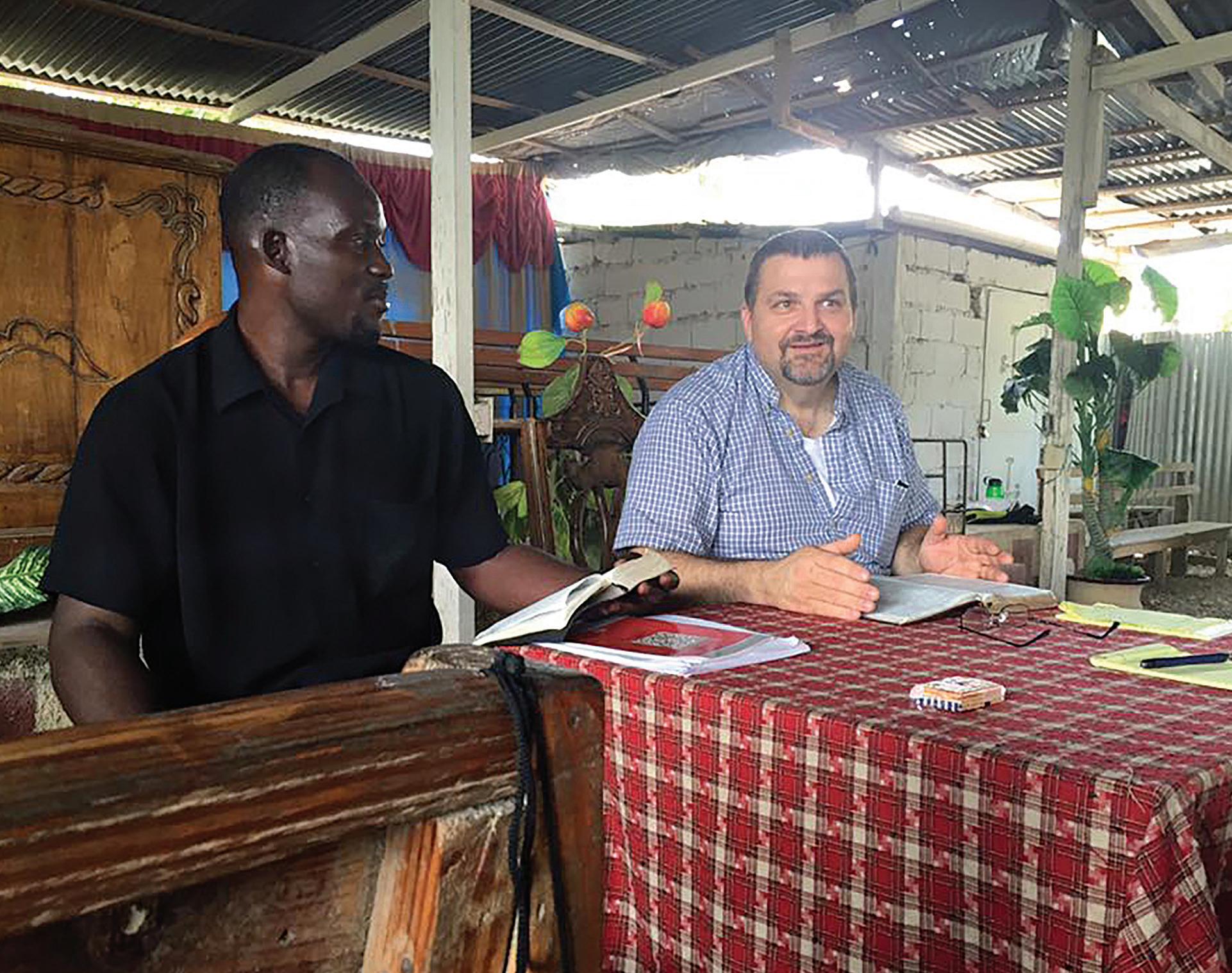
For more information about missions opportunities in Haiti and elsewhere, go to IBSA.org/ missions.
“Mackenzie’s enthusiasm is contagious and our church is falling in love with Haiti too,” Alison said.
Hillcrest Baptist sends a monthly donation to IBSA’s Haiti fund, and several members want to go to Haiti on mission with Mackenzie and her family. The Howells currently are praying about whether to return in 2016 or the following year.
“Things are so busy with all our Haiti projects,” Alison said, “we want to be sure and honor him with our time and resources. But no doubt we will be back to Bigarade soon! And with a big group of Texans, I hope!”
– Meredith Flynn
12 IBSA. org Illinois Baptist
Building a firm foundation for Haiti’s pastors
Seeing the Good News in unlikely places
BY NICK RYNERSON
“Unless the gospel is made explicit,” says Matt Chandler in his book “The Explicit Gospel,” “people will believe that Jesus’s message is that he has come to condemn the world, not to save it.”
Much has been made lately of this idea, that the gospel must be consistently made the explicit focus of our ministry, teaching, preaching, writing, thinking, and living. At first it sounds good; who wouldn’t want to center their life on the gospel explicitly preached? Declaring, believing, and enjoying God’s grace given to us through the sacrificial death and resurrection of Jesus Christ is the penultimate privilege of the Christian.
But what does this mean for Christian bakers, musicians, filmmakers, writers, and insurance salesmen? Does this mean we need to weave gospel presentations into everything we do and avoid things that don’t fit in with our understanding of the gospel?
According to the Bible, maybe not.

While Jesus said that the whole Bible testified about him (John 5:39), in the first 39 books of the Bible, there is basically no explicit mention of Jesus. But that certainly doesn’t mean the gospel wasn’t present in the Old Testament. After his resurrection, Jesus on the road to Emmaus applied the explicit gospel to the less obvious gospel message of the Old Testament: “Beginning with Moses and all the Prophets, he interpreted to them in all the Scriptures the things concerning himself” (Luke 24:27).
One of the wonderful things about the gospel is that it is a story. It’s the story of man’s rejection of God and God’s redemption of the creatures that rejected Him through the blood of the sinless son of God. And in this story there are themes that any good gospel presentation will communicate: rebellion, love, grace, redemption, and unmerited favor.
When we see the world through these “gospel-colored glasses,” we begin to see those themes in unexpected places. Understanding the explicit gospel helps us see the implicit gospel. By having a level of explicit “gospel fluency,” as Pastor Jeff Vanderstelt puts it,
we aren’t provoked to put gospel demands on earthly things. Instead, we begin to see echoes of the explicit gospel in those same earthly things.
The apostle Paul, maybe the most “gospel fluent” person to ever walk the earth, modeled this for us in Acts 17. Here, Paul preaches the explicit gospel in Athens and then, incredibly, cites Greek pagan poetry as examples of the love and graciousness of God! This means that Paul must have read these poems and thought, “Wow! The themes of the gospel are so strong, I bet I could use these to actually preach the gospel!”
He saw the implicit gospel because he knew the explicit gospel. This means we are free to see the good gospel themes in the “secular” world. Whether it’s a
movie, song, book, or TV show, if we are familiar enough with the themes of the gospel we can pick out those gospel themes when they show up in culture. The Christian appreciation of culture is possible when we are convinced that God’s world, even in its fallen state, echoes God’s word (i.e., the gospel).
Seeing the world through gospel-colored glasses also allows us to not have to tell the whole story every time. This is why good fiction written by Christians can be so powerful. Flannery O’Connor, C.S. Lewis, J.R.R. Tolkien, and Marilyn Robinson can bring me to tears not because they present an elaborate gospel presentation, but because they use well-crafted stories to imply gospel truth. It’s truth that circumvents propositional logic and hits the heart.
Art, music, and stories have a funny way of doing that. They speak to something deeper than our logical mind, as if when we read a good story or listen to a good song, something deep within us is stimulated and our hearts “burn within us” (Luke 24:27).
So yes! Preach the explicit gospel, and put on your “gospel-colored glasses” to be on the lookout for the implicit gospel too. We need both. As Martin Luther reminds us, “God writes the Gospel not in the Bible alone, but also on trees, and in the flowers and clouds and stars.”
Nick Rynerson is a staff writer for Christ and Pop Culture and works for Crossway Books publishing house in Wheaton.

fresh ideas
The launch list
From preschool classes to senior adults, your church’s Sunday school or small group leaders impact lives. Need some fresh ideas for demonstrating your appreciation for them?
Print an annual bulletin insert listing all Sunday school/small group teachers, with their names listed under their “sending” Bible class. The sending class is the one they’d attend if they weren’t serving as a teacher. Beside each name, indicate the age group they lead, such as preschool, adult, etc.
DIANA DAVIS
There’s no greater compliment to an adult Bible teacher than launching leaders to serve, so this list will encourage adult teachers. Additionally, adult classes can be the greatest supporters and encouragers for their members-in-service:
Create a “wall of honor” display in your classroom, featuring their photos and class names. Leave room for additional teachers that God may call out.
Pray for them in class often. Snap a photo of the class in prayer and text it to them.
Take a brief “field trip” during the last minutes of your class one week to stroll past classrooms where your class members serve in Sunday school. Snap an action photo and send it to them.
Help with a specific need for the class they teach, i.e. equipment, transportation, snacks for a fellowship, Bibles for class newcomers, a desired toy for a preschool classroom.
If your class has a Facebook group page or newsletter, feature their photo and an update on their class occasionally.
Provide a substitute teacher when they go on vacation.
Invite them to report annually to their home class about how God is working.
Be intentional about personally inviting them to class fellowship events, and welcome them warmly.
Keep their names on your class phone lists, newsletters and email lists. Put a star by their names to remind members to pray for them as they serve.
The annually updated “launch list” not only encourages adult classes to send out leaders, but it also helps them celebrate and encourage all those who serve outside the class.
© 2015 Diana Davis is an author and minister’s wife.
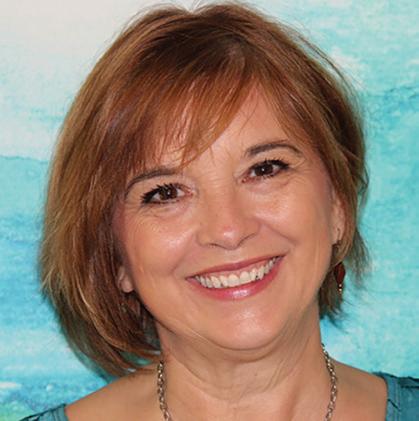
table talk IBSA. org 13
December 14, 2015
If we are familiar enough with the themes of the gospel, we can pick them out when they show up in culture.
Christmas pageants can be a real challenge for small churches.
meet the team
Meet:
Steve Hamrick Director of Worship and Technology
IBSA Church Resources Team
150 years and counting
people
Welcome
Eric Trout has joined the staff of Second Baptist Church of Marion as student pastor. Originally from Carmi, he previously served served churches in Kentucky, Illinois, and Texas. Eric holds a B.S. in Missions and Evangelism from Mid-Continent University and is currently working towards a Masters degree from Southeastern Baptist Theological Seminary. Eric and his wife, Anna, have three children.

Family: I’ve been married to Linda since 1982. We have three children: Melody is a music teacher in Riverton, Carol lives in Marion and is married to Andrew, the youth and children’s pastor at Third Baptist there, and our son Matthew is an IT expert at State Farm in Bloomington. We have three grandchildren: Jared, 2; Ellie, 7 months; and Jemma, 1 month.
How long have you been at IBSA? I just finished 8 years.
Favorite thing about church as a kid: I enjoyed the humor of being a preacher’s son. I saw the choir flooded when the baptistery overflowed one Sunday. And I remember us “losing it” when a not-sogreat singer sang for the offertory.
Memorable moment as an IBSA staffer: When I see our worship leaders help make the worship experience more relevant and connective between people and God, my heart is excited.
All-time favorite movies: The Princess Bride, Facing the Giants
Give us some Springfield highlights for you. Lincoln sites are awesome; I enjoy the lake and rivers. Mimosa and Little Saigon are my favorite Asian restaurants, and D’arcy’s has the best fried oyster po-boy north of the Mason Dixon. I’m excited for the new Chick-Fil-A to open. Cook’s Chili is the best hole-in-the-wall restaurant. I also like Yanni’s gyros and Chadito’s fish tacos.
Favorite Scriptures: Ephesians 2:9-10 and Proverbs 3:5-6
NeTworkiNg
Herrin | First Baptist Church of Herrin observed its 150th anniversary with a daylong celebration on November 15. Interim Pastor Paul Mount, Minister of Music Courtney Hill, who has served 16 years, and retired Minister of Music Joe Proctor led the festivities. IBSA Executive Director Nate Adams was guest speaker.
Founded in 1865 as Herrin’s Prairie United Baptist Church, FBC has occupied five buildings. Records show 19 people were present at the first service, held in a one-room schoolhouse. That building served as home to the congregation for two years. The present facility was built in 1972 on land donated by descendants of the charter members.
The Herrin church was instrumental in the founding of IBSA, hosting the first official Annual Meeting in 1907. There were 700 in attendance at that meeting, according to a history of the church. Among the church’s pastors was Maurice Swinford, who later served as IBSA Executive Director from 1988 to 1993.
Four IBSA churches started in 1865 are still in existence today.
“I think it’s pretty overwhelming when you begin to consider 150 years of history,” Hill told the Southern Illinoisan newspaper.
“I hope (younger people) can get a feel for a little more of the history of the church” through the anniversary events, he said.
CELEBRATE GOOD TIMES –
(1) Current and former members marked the anniversary with fond memories and bluegrass music.
(2) Herrin FBC’s third building, built in 1901, cost $4,291.
(3) Shirley and Bob Hays dress in the style of the 1865 founding.

Find more information on ministry positions at IBSA.org/connect
Send NetworkiNg items to AndreaHammond@IBSA.org
Hopewell Southern Baptist Church in Pana seeks a bivocational pastor. Call Homer Hess at (618) 214-6819.

Westside Missionary Baptist Church in Mt. Vernon seeks a bivocational pastor. Send resumes to the church, Attn: Deacons, 2900 Veterans Memorial Dr., Mt. Vernon, IL 62864.
Bethel Baptist Church in Princeton seeks a dynamic, full-time pastor who believes strongly in Matthew 28:16-20. Salary, medical/retirement package, and parsonage available. Call (815) 879-9181 or send resumes to Bethel Baptist Church, 1028 South Sixth St., Princeton, IL 61356.
Franklin Baptist Association seeks a bivocational director of missions. Send resume and letter concerning your desire for this position to Franklin Baptist Association, Re: DOM Search Committee, 105 S. McLeansboro St., Benton, IL 62812, or fbamc@frontier.com.
In Memory
Pastor James Carter, 65, died November 13 in O’Fallon. Carter was pastor of Villa Hills Baptist Church in Belleville. A U.S. Navy veteran, he also worked for the Department of Veterans Affairs.
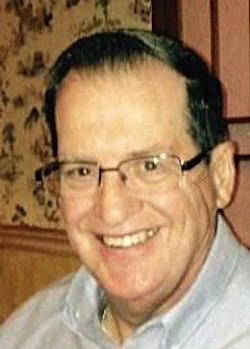

Carter is survived by his wife, Cathy; daughter, Sharon; and five grandchildren.
Anniversary
Ten Mile Baptist Church in McLeansboro celebrated its 195th anniversary in October, also dedicating a new Family Life Center with a gym, kitchen, youth center and community food pantry.
IBSA Executive Director Nate Adams was on hand to speak during the morning worship service and present Pastor Jacob Gray with a commemorative plaque.
Baptist Children’s Home and Family Services seeks proactive motivator to work with troubled children and teens. BS/BA in therapeutic recreation or equivalent training preferred; full-time, salary and benefits package. Send resumes to Melinda Bratcher, BCHFS, 949 County Road 1300 North, Carmi, IL 62821, or melinda.bratcher@bchfs.com.

PAID ADVERTISEMENT
Seeking: Full-time music and worship pastor at First Baptist Church of Murray, KY. Contact Rhonda Roberts at First Baptist Church, 203 South 4th Street, Murray, KY 42071.
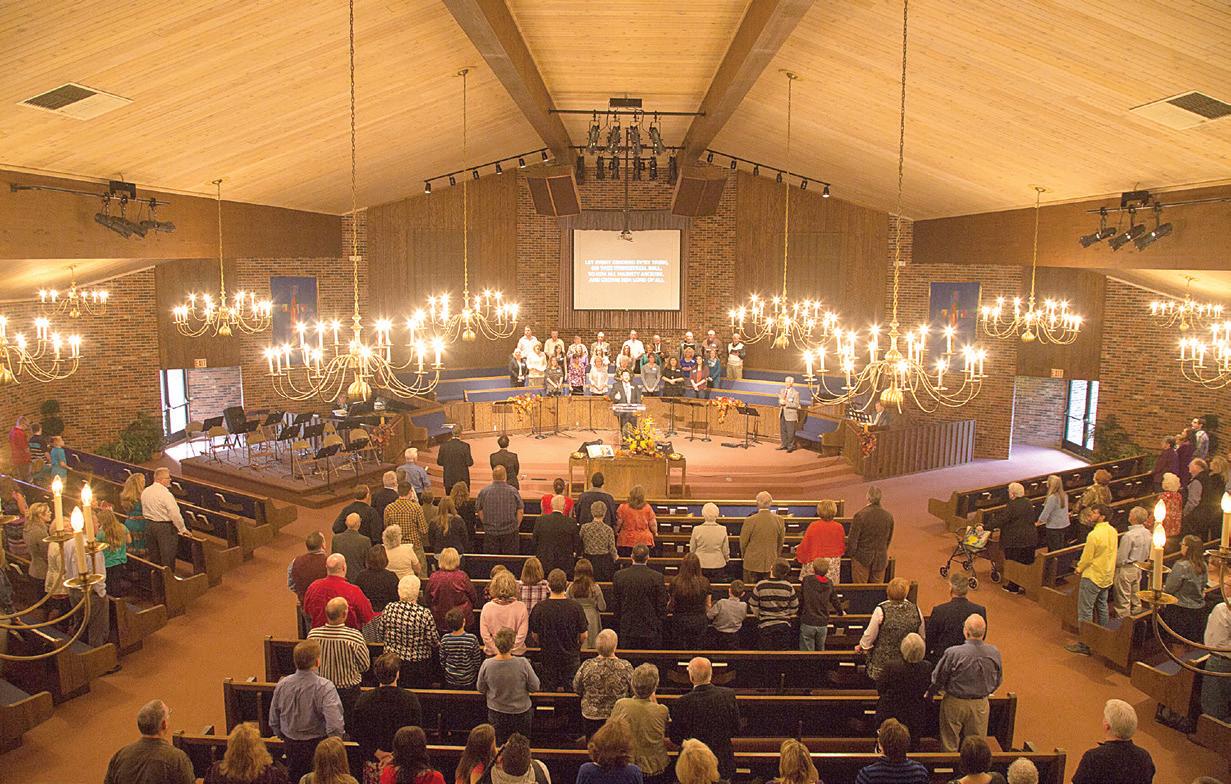
14 IBSA. org Illinois Baptist
1 2 3
January 7, 8, 14, 16, 19
IBSA Tax Seminars
What: Updates on 2016 tax code changes and IRS guidelines for pastors, church treasurers, and finance committees

Where: Jan. 7: IBSA Building, Springfield, 9 a.m. to noon; Chicago Metro Baptist Association, 7-9 p.m.; Jan. 8: Emmanuel Baptist Church, Lemont, 9 a.m. to noon; Jan. 14: Woodlawn FBC, 9 a.m. to noon; Gateway Baptist Association, 6-9 p.m.; Jan. 16: Halsted Road Baptist Church, Rockford, 8:30 a.m. to noon; Jan. 19: New Hope Baptist Church, Coal Valley, 1-4 p.m.
Contact: AlexisDumire@IBSA.org
Information: www.IBSA.org/church_health
January 26-27
Illinois Leadership Summit
What: Leadership training for your ministry context


Where: IBSA Building, Springfield Register: www.IBSA.org/summit
Contact: BarbTroeger@IBSA.org
February 16
Rekindling the Call
What: Retreat for IBSA pastors and wives
Where: Streator Baptist Camp
Contact: AlexisDumire@IBSA.org
February 18
iConnect: IBSA/Pastors Meet-Up
What: Introduction to IBSA staff, ministries, training and opportunities, for pastors and church staff members
Where: IBSA Building, Springfield
Contact: AlexisDumire@IBSA.org
February 20
Church Tech Conference
What: Learn how to use technology for outreach and for corporate worship.
Where: IBSA Building, Springfield
Contact: CathyWaters@IBSA.org
February 27
VBS Clinic
What: Training in multiple age groups and focus areas
Where: Chatham Baptist Church
Contact: CathyWaters@IBSA.org
Information: www.IBSA.org/kids
dave says
Budget for repairs
QWhen we have standard car repairs, I want to use the emergency fund. But my wife says that kind of thing isn’t an emergency, and we should just put it off as long as possible while saving up to fix the problem. Who’s right?
ASorry, you’re both wrong. Cars break. And since no one will invent one that lasts forever and doesn’t break down, standard car repairs shouldn’t be viewed as an emergency. Maintenance and repair of your vehicles are ongoing expenses. It’s just part of owning them. That means you should have a category in your monthly budget for this sort of thing.
Now, an engine blowing up or the transmission going out would be an emergency. Hopefully, you’re not talking about something of this magnitude. But you’ve got to rework your budget to where you have something designated each month for car maintenance and repair. That way, you won’t be dipping into your emergency fund just to cover the basic wear and tear that comes with owning a car.
Take the next step today, and adequately fund this area so it doesn’t continually come back to bite you in the wallet and sabotage your emergency fund! Financial advisor Dave Ramsey is a prolific author and radio host.
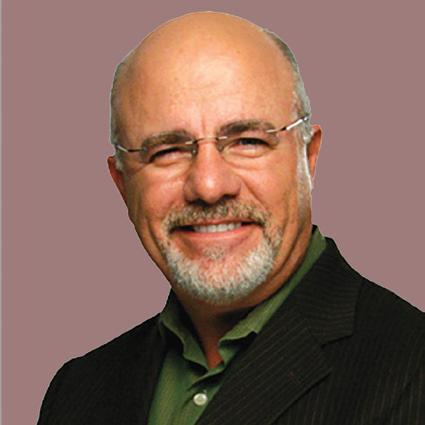
the next step. mbts.edu/ibn12
THANK YOU
To all participants who made the exhibit hall at the 2015 IBSA Annual Meeting a great success!
Baptist Children’s Home & Family Services
Baptist Foundation of Illinois

Cedarville University
Child Evangelism Fellowship of Illinois
Gearhart Insurance
God’s Courtroom
GuideStone
Hannibal-LaGrange University
Judson University
Midwestern Baptist Theological Seminary
North American Mission Board
Southern Baptist Theological Seminary
Trinity International University Union University
IBSA. org 15
EVENTS
December 14, 2015 THE ALL NEW 81 HOUR MDIV. TAKE GOD’S UNCHANGING WORD INTO A RAPIDLY CHANGING WORLD. Midwestern Seminary’s flagship degree is our primary track for ministry preparation. At 81 hours, the M.Div. offers a complete foundation for full-time ministry leaders, offering all you need and nothing more. Join other students in vibrant Kansas City as you train in a unique collaborative environment focused on the local church. Unable to relocate to Kansas City? Other study options are available.
DAVE RAMSEY
Take
Worldview Conference Biblical Training for Today’s Culture Does Scripture REQUIRE cultural engagement?
is the biblical purpose of government?
judges and the courts hold the ultimate power in a nation? Does the Bible support some form of democracy?
is the free market system?
does the Bible teach
social ethics?
Christians get involved in politics?
is the WAR on poverty? Saturday, February 20, 2016 Village Church of Barrington | 1600 E. Main St., Barrington, IL 10:00 AM – 3:30 PM Featuring Dr. Wayne Grudem Dr. Grudem is Research Professor of Theology and Biblical Studies at Phoenix Seminary in Arizona and taught at Trinity Evangelical Divinity School in Deerfield, IL, for 20 years. He’s written more than 20 books, including Politics According to the Bible, Systematic Theology and The Poverty of Nations Contact Us: 708-781-9328 | www.illinoisfamily.org
What
Should
What
What
about
Should
What
i lead
Pieces of a puzzle
ormer Dallas Cowboys coach Tom Landry who said, “A leader is able to get people to do what they would not have done on their own.”
That’s the fun of leadership: guiding a team toward a common goal and, hopefully, to success. The leadership paradigm shifts, though, when leading not just a team focused on one thing, but a group of leaders charged with seeing the big picture.
The third phase in IBSA’s leadership development process is “leading leaders.” People who are ready for this phase will not only lead themselves and others well, but they will have pivoted away from a singular focus on a particular ministry, toward a vision of what each leader and each team contributes to the whole.
EDWARD JONES
What’s the first thing you do when you start a jigsaw puzzle? The edges, right? But there’s another step you have to take first if you’re going to solve the puzzle.
You have to look at the big picture.
Before searching for where individual pieces fit, you have to catch a vision for where you’re headed. Then, you can start at the edges and work your way inward.
The leader who is leading other leaders will constantly put forth the vision of the big picture. He or she will know when to step up to move the group toward the goal.

The leader of leaders also knows when to step back.
In my work as a church planting strategist in Chicagoland, I work with a lot of leaders. They’re already leading well. It’s my job to validate what they’re doing, note their strengths, and celebrate their successes. I also get to build on those things, helping them examine ways they can be more effective and pointing out things that may not yet be on their radar.
The best leaders are people who see the strengths in others, and allow them to exercise those strengths. It’s hard to lead leaders and micromanage them. You can try, but the two don’t really go together.
Once you identify leaders, let them lead. Allow them to function in the way that’s best for them—and the whole team—within the framework of the vision you’ve setting forth.
That’s how you’ll move people to do the things they never thought they would.
Edward Jones is IBSA’s African American Church Planting Catalyst serving in Chicagoland.






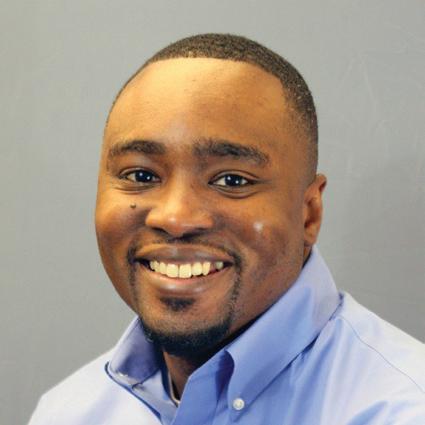
Church needed here...
Location: Oak Park
Reaching: Unreached singles and families in this historic community of almost 52,000 people

Characteristics: The birthplace of Ernest Hemingway and site of several of Frank Lloyd Wright’s architectural masterpieces, this socio-economically diverse urban suburb on Chicago’s western border has a thriving art community.
Prayer needs: Pray that the Lord of the harvest would raise up laborers to add a New Testament church to the rich heritage of Oak Park, where there are no SBC churches.
to baptize
In a nearby state where baptisms were declining, some churches stood out because they continued to baptize new believers. What made these standout churches different?
Pastors preach in a way that gives a clear gospel message, and the preachers offer an invitation at each service.
The churches schedule special days for baptism services and announce them in advance.


Church members are trained in evangelism on a regular basis.
Resource is a magazine and planning guide produced especially for Illinois church leaders. The spring issue is all about church revitalization. Now in its fourth year, this publication is sent free to all IBSA churches, pastors, and a select group of leaders. Get yours by request, e-mail AndreaHammond@IBSA.org.
inspirations
pinterest.com/illinoisBaptist

And the winner is….



Honor your volunteers with a special awards night. VolunteerPower.com reports that positive feedback is the number one motivator for volunteers. Start with thank-you notes that tally up the number of hours they’ve served. Next, create an award for outstanding examples of service. When volunteers do the jobs they agreed to, they should be recognized. But when someone goes above and beyond, they should be rewarded.

So start now planning a banquet for that stellar teacher, youth leader, small group coach, deacon, or custodian.
Unusual joy
“About midnight Paul and Silas were praying and singing hymns to God, and the other prisoners were listening to them.” (Acts 16:25)
Paul’s call from God to go to Macedonia was undeniable. It caused a change in his travel plans and expanded the church-planting results of gospel preaching. Paul and Silas arrived at Philippi and soon aroused the anger of some businessmen. After being beaten they were imprisoned. Their demonstration of joy and prayer opened the door to faith for the jailer and his family.
Later, Paul wrote a letter to the Philippian believers and its theme is joy. Being used of God to build His Kingdom certainly has its moments of heartache and pain. Satan, our adversary, resists every step forward that we take. Paul’s experience in Philippi is a great reminder of how much impact the demonstration of joy can have upon our gospel witness.
Joy is not for Christmas only. The Bible tells us that joy is a fruit of the Spirit. It is evidence that God is at work in our life. Who are the people around you that need to see the joy of the Lord as they hear the gospel?
PRAYER PROMPT: Father, as you continue shaping me to be more like Jesus, help me to bear witness of your presence through a joyful obedience to your call, at Christmas and all year long.
Odis Weaver is pastor of Friendship Baptist Church in Plainfield and is immediate past president of IBSA. Pastors are invited to join the online “IBSA Pastors’ Prayer Room” by e-mailing oweaver7307@gmail.com.
16 IBSA. org Illinois Baptist
i saw it in resource Plan
devotional
R e s o u r c e Eq p h h d Sp g 2016 Resilience How churches ca be ebo Test the so s y B d P t h Vis on F
ODIS WEAVER


























 THOMAS H.L. CORNMAN DEAN, TRINITY COLLEGE AND GRADUATE SCHOOL VICE PRESIDENT FOR ACADEMIC ADMINISTRATION
GRAHAM A. COLE
DEAN,
THOMAS H.L. CORNMAN DEAN, TRINITY COLLEGE AND GRADUATE SCHOOL VICE PRESIDENT FOR ACADEMIC ADMINISTRATION
GRAHAM A. COLE
DEAN,
 DAVID S. DOCKERY | president, trinity international university
DAVID S. DOCKERY | president, trinity international university












































